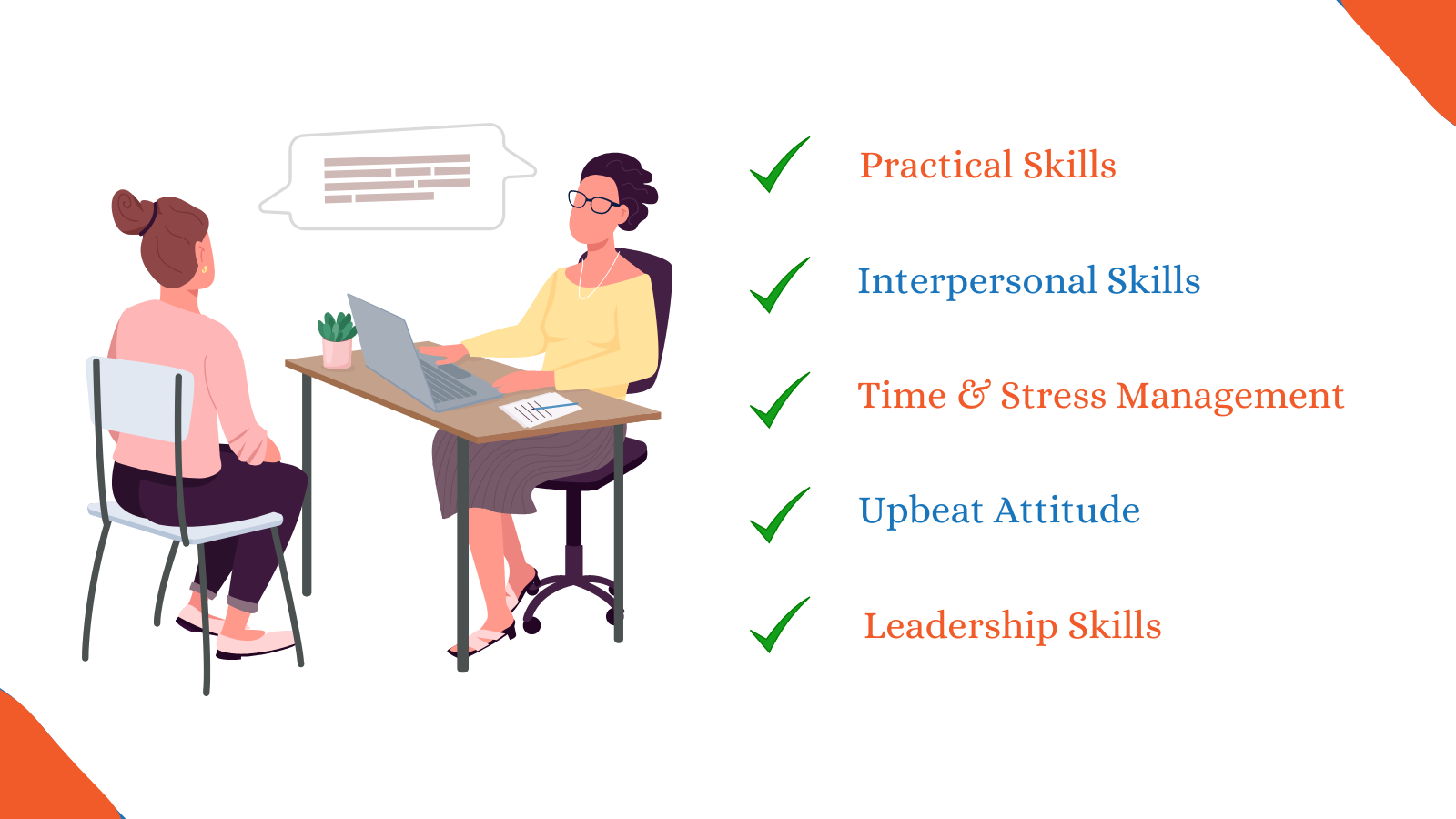
Do you have a large number of employees but not enough jobs to fill? If so, you’re not alone; many businesses around the world are facing the same challenge. Unfortunately, many organizations have resorted to downsizing their workforces to control costs instead of leveraging their talents.
On the other hand, a wiser option would have been to create jobs to accommodate employees’ hidden talent. This is because leveraging employees’ skills can help increase a company’s productivity and ultimately benefit the organization in the long run.
The increasing importance of new-age skills in the workforce
In today’s ever-changing business environment, the importance of new-age skills for success cannot be neglected. The ability to learn quickly, think critically, and collaborate effectively are just some of the skills employers are looking for in candidates. In addition to these, employers are increasingly valuing so-called “new age” skills such as creativity, adaptability, and analytical skills. As per a report, the majority of L&D experts (59%) see reskilling and upskilling as very essential for their organizations.
By acquiring new-age skills, employees can develop their careers and help their company succeed. For example, creative problem-solving skills can help employees come up with innovative solutions to solve difficult challenges. Critical thinking can help them identify underlying issues and develop strategies to address them. And, collaboration skills can help them work effectively with others and create better results.
Thus, acquiring new-age skills is beneficial for both employees and their companies. It can help employees to stay ahead of the competition and stay in line with new opportunities. On the other hand, by utilizing their employees’ extra skills and potential, businesses would be better positioned to succeed in the future.
How mentoring can help employees expand their skills for the future?

Mentoring can be an invaluable tool for developing employee skill sets that employees would need to succeed in the modern workplace. Through mentoring, employees can gain access to expertise and insights from more senior and experienced colleagues, expanding employees’ current skill set and knowledge base. Here are some ways mentoring can help employees acquire new skills or expand their existing ones.
- Developing practical skills: Mentoring enables employees to develop practical skills they can use in their day-to-day tasks. Mentors can guide how to complete tasks efficiently, use resources effectively, and adapt to new technologies. For example, mentoring can be used to teach employees new-age skills, such as digital literacy, data analytics, and problem-solving. This can help employees stay up-to-date with technology and trends, and give them the tools they need to remain competitive and successful in the modern workplace.
- Building interpersonal skills: Mentoring can support employees to develop interpersonal skills, such as listening, communication, and conflict resolution. These skills are essential in any workplace, as they help employees build better relationships and foster collaboration. In fact, 87% of mentors and mentees say their mentoring relationships empower them and provide opportunities to learn, connect, and grow with someone they wouldn’t otherwise have.
- Time management, task prioritization, and stress management: Mentoring can also help employees develop essential skills, such as time management, task prioritization, and stress management. These skills are essential in any workplace, as they help employees stay organized, efficient, and focused. By guiding them to prioritize their tasks and how to be better at managing, employees can learn how to plan ahead, be more productive, and healthily deal with stress and burnouts.
- Building an upbeat attitude and broadening perspective: In addition to developing essential skills, mentoring can also help employees develop an upbeat attitude and broaden their perspective. That is, mentors can offer different perspectives on challenges and opportunities, which can help employees broaden their thinking.
- Building leadership skills: Mentoring can also help employees develop stronger leadership skills, such as decision-making, problem-solving, and team-building. With the help of a mentor, employees can gain the confidence to take on more responsibility and develop their own leadership style.
In short, mentoring can be a powerful tool for helping employees expand their skill set and stay at par with new-age skills.
How mentoring can help managers and upper management to upskill?
Mentoring is a powerful tool for helping upper management and managers learn specialized skills or gain exposure to a broader range of initiatives.
Here are a few examples of how mentoring can help upper management and managers to expand their skills and knowledge:
- Acquiring new skills: Mentoring can help upper management and managers acquire new skills that are necessary for their job. For instance, they may need to learn more about marketing, customer service, or data analysis.
- Developing new strategies: Mentoring can also help upper management and managers to explore different strategies and come up with the best solution for their organization. For instance, they may need to come up with new product ideas, develop a better customer service system, or create a more efficient work process.
- Exploring new ideas: Mentoring can also help upper management and managers explore new ideas and develop creative approaches. For instance, they may need to learn about new industry trends and technologies or come up with innovative ways to solve problems related to work processes such as improving service quality, streamlining operations, and enhancing employee performance.
- Developing resilience: Mentoring can help upper management and managers to develop the resilience they need to succeed in a challenging and ever-changing business environment.
- Helping to create a culture of learning: Mentoring can help to create a culture of learning, which can help upper management and managers to stay ahead of the curve.
How can organizations use their employees’ untapped skills and potential to create jobs?
Mentoring programs can help companies create jobs that utilize employees’ extra skills and potential in so many ways as listed below:
- Development of new skills and knowledge
Mentorship programs are easy to set up by pairing senior employees with junior employees. This would create an environment of learning and development, and help your employees to strengthen their competencies.
- Cross-training mentoring
Cross-training involves training employees in multiple areas of an organization and is an excellent way to create jobs and utilize the extra skills and potential of your employees. By utilizing cross-mentoring methodology in different areas of your organization, you can increase awareness and skills within your organization, enabling them to collaborate more effectively.
- Create new job roles that aren’t part of normal jobs
Mentoring can ask organizations to create new positions to utilize the skills and potential of existing employees and involve them in projects or initiatives outside of their normal job. For example, if an employee has a background in marketing, they could be put in charge of running a company’s social media accounts.
- Create job rotation programs
Mentors can suggest job rotation programs to upper management to allow employees to learn new skills and gain new experiences. For example, you could create a job rotation program where employees switch roles every few months. This could be as simple as having someone switch departments, or as complex as having them switch roles within the same department. It involves two or more employees working part-time on a single job. This allows them to collaborate and use their different skills and experience to complete the task.
Evaluating whether your employees and upper management are utilizing their extra skills
Here are some ways you can evaluate whether or not the strategies you’ve put in place to encourage the utilization of extra skills are helping your organization to grow:
- Track the progress of initiatives
If you’re implementing initiatives that require the use of employees’ and upper management’s extra skills, make sure you track the progress of these initiatives. This will allow you to gauge the success of these initiatives and determine whether or not they’re helping your organization grow or is the project or job role in line with their interest.
- Measure the impact of extra skills
Another way to evaluate the effectiveness of your strategies is to measure the impact of your strategies in terms of time and effort put in. For example, you can measure the amount of time saved, the number of sales generated, and the number of customers acquired as a result of their extra skills.
- Analyze feedback
Finally, make sure you analyze the feedback you’re getting from employees and upper management. Ask them for their thoughts on the strategies you’ve put in place and solicit their suggestions for improvement.
These factors can help create a transparent feedback mechanism which will help both employees and organizations to judge whether their efforts are doing justice in bringing a positive change in the organization or not.
Conclusion
.png)
When it comes to creating jobs, organizations need to think outside the box. Mentoring can be one of the practical strategies to help utilize the extra skills and potential of employees that may have been under the bridge in their current roles.
Similarly, mentoring solutions can also play a vital role in identifying untapped skills and potential of employees as they can match mentors and mentees to determine the capabilities of different individuals in an organization.
Mentoring Complete is one such platform that uses AI-based algorithms to match mentors with mentees. With its sophisticated matching system, Mentoring Complete is designed to help organizations foster meaningful mentorship relationships that can lead to better outcomes for everyone.
So, try Mentoring Complete today and unlock the skills and potential of your employees without any complications. Talk to our experts and get going with today’s means of bringing a positive change within your organization.
Frequently Asked Questions
Q. What are the benefits of having a mentor?
There are many benefits to having a mentor, including receiving guidance and support from someone with more experience, gaining access to new opportunities, and developing new skills.
Q. What are the benefits of having a coach?
The benefits of having a coach include receiving support and motivation to reach specific goals, improving performance in specific areas, and gaining new insights.
Q. What is the difference between mentoring and coaching?
Mentoring is a process whereby an experienced individual provides guidance, support, and insight about work to another person. Coaching, on the other hand, is a process whereby an individual helps another person to attain a specific goal.
Q. What is the difference between mentoring and coaching?
There are many ways to find a mentor, including asking someone you admire for advice, seeking out professionals in your field, or joining a mentorship program.